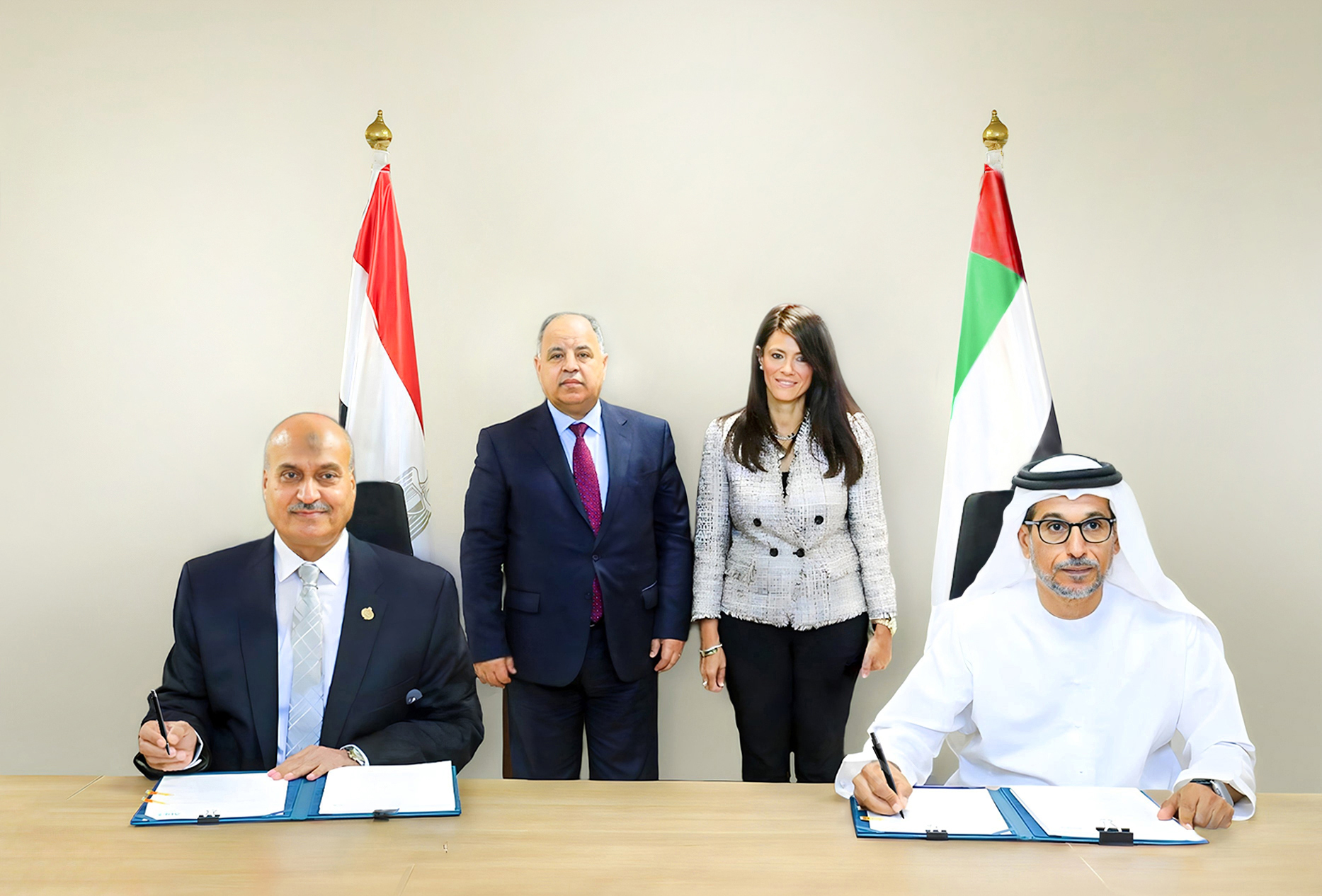Abu Dhabi, UAE — Abu Dhabi Exports Office (ADEX), the export-financing arm of Abu Dhabi Fund for Development (ADFD), has signed a five-year $500m agreement with the Egyptian government to facilitate the provision of wheat and essential commodities in the North African nation.
The agreement entails a revolving financing program valued at S100 million, to be renewed annually over a five-year period, ultimately reaching a total of $500 million.
ADEX signed the agreement with Ministry of International Cooperation, Ministry of Finance, and the General Authority for Supply Commodities in Egypt, aiming to facilitate the provision of wheat and essential commodities through Al Dahra Agriculture, an Emirati company.
On the UAE’s side, the agreement was signed by Mohamed Saif Al Suwaidi, the Director General of Abu Dhabi Fund for Development and Chairman of the Exports Executive Committee at the Abu Dhabi Exports Office (ADEX).
The Egyptian side was represented by Dr. Rania Al Mashat, Minister of International Cooperation, who signed the framework agreement, while Dr. Mohamed Moait, Minister of Finance, validated the funding guarantee.
Al Suwaidi said the agreement demonstrated commitment of both nations’ leadership to mutual growth and development across various sectors.
“The collaboration among the Abu Dhabi Exports Office, the General Authority for Supply Commodities, and Al Dahra will play a pivotal role in fortifying the strategic reserves of essential agricultural commodities, thereby ensuring the food security of the Egyptian market. Through this agreement, ADEX is committed to facilitating credit that will further bolster the export landscape,” Al Suwaidi added.
Dr. Rania Al Mashat said the agreement signifies the profoundness of the strategic ties between Egypt and the UAE. The two nations are committed to augmenting economic integration and advancing joint development endeavors.
The minister conveyed her gratitude for the enduring development cooperation between Egypt and the Abu Dhabi Fund for Development, a partnership that originated in 1974.
This collaboration has led to the funding of over 20 projects valued around AED4.5 billion across various priority sectors, directly benefiting citizens, particularly in fields like water, health, housing, transportation, and agricultural development.
Notably, the UAE’s support has contributed to the establishment of 25 silos in 17 governorates, increasing wheat storage capacity by 1.5 million tons.
Al Dahra already farms 28,000 hectares of land in Egypt that help sustain the country’s food security by producing staple crops. It is the largest private sector producer of wheat and corn in Egypt in addition to the production of onions, sugar beet, sesame, citrus, sorghum as well as forage for the livestock.
Nearly 85 percent of all food produce outputs from Al Dahra’s Egyptian farms are supplied locally, helping reduce the import burden for the government. Globally, Al Dahra’s production output of grains and oilseeds output is approximately 600,000 metric tons.







